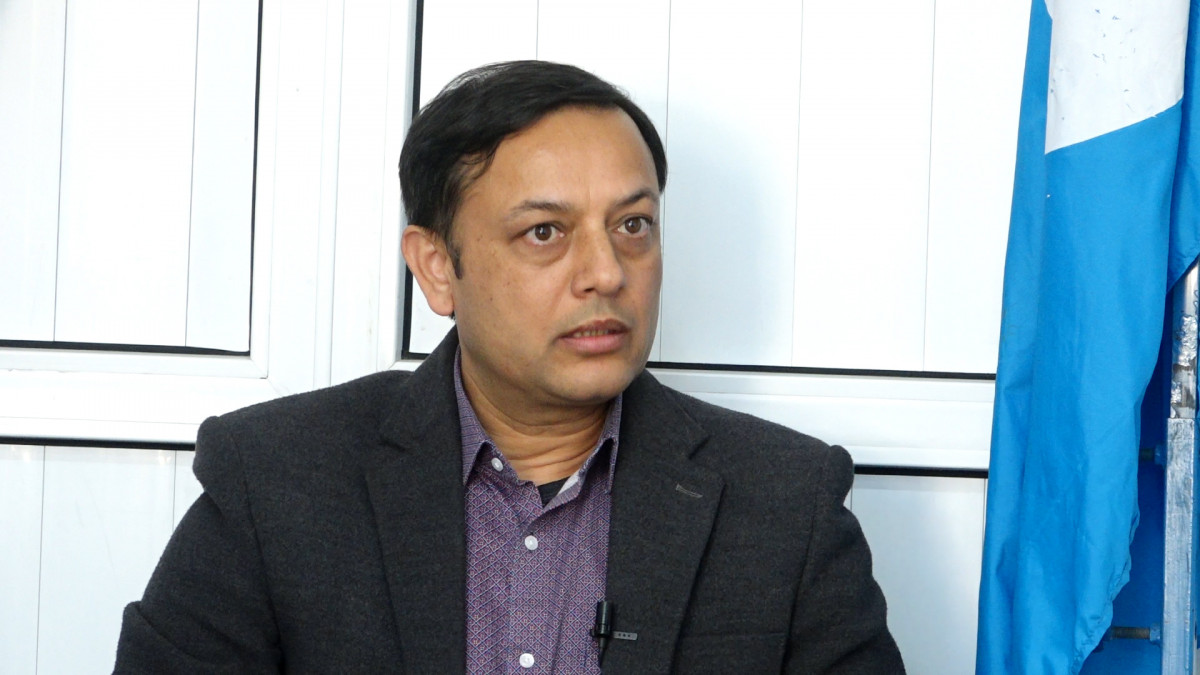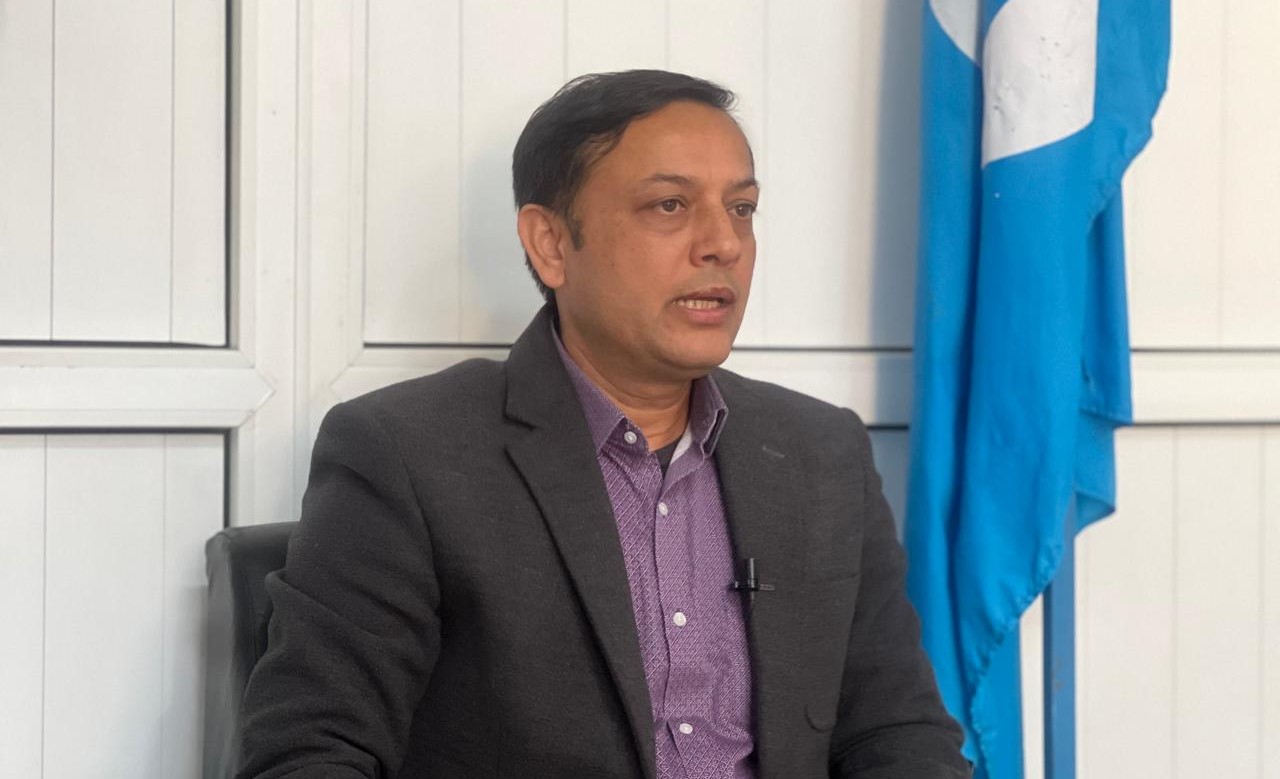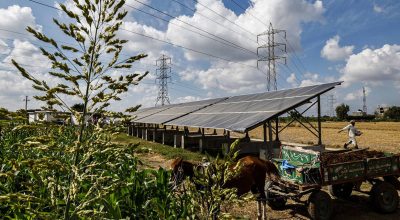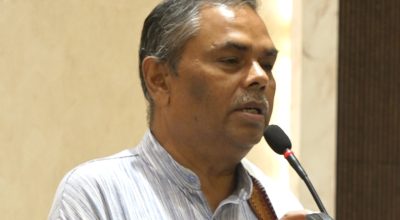
Kathmandu, Jan 23: The President Ram Chandra Paudel, on the recommendation of the Council of Ministers, has called the winter session of the Federal Parliament for January 31, 2025. As the fourth-largest party in the lower parliament (House of Representatives), the newly emerged Rastriya Swatantra Party (RSP) is preparing to make a significant impact in the upcoming parliamentary session. In an interview with Acting President Dol Prasad Aryal (DP Aryal), we discussed the RSP’s role and strategy for the session. Excerpts:
What will the role of RSP be in the upcoming fifth session of the Federal Parliament?
First and foremost, it seems that the government has been compelled to heed the opposition’s warnings, even if it took time. The delay in calling the session was already excessive. We had earlier raised this issue with the House Speaker Dev Raj Ghimire. Following meetings among opposition parties, the session was finally called, which is a welcome step. Parliament is the platform to raise public grievances and address issues, but the government appeared to be bypassing this by attempting to rule through ordinances. The winter session is generally considered a legislative session, and RSP is committed to contributing 100% toward law-making in this term.
Only 11 bills have been passed in the previous four sessions. Recognizing this, I have already initiated discussions with the party’s chief whips to organize informal meetings for better legislative preparation. Our priority is to ensure that this session focuses on productive legislative work.
The government has hinted that some bills may be pushed forward without adequate discussions in committees. How will RSP handle such situations?
We have consistently stated that the coalition between the two largest parties is unnatural. Such practices undermine democracy, potentially weakening the opposition. This risks sidelining public issues, something we have been vocal about. The government’s recent attempts to bypass parliament through ordinances and bring pending bills via this route are unconstitutional, in our understanding. We are closely monitoring this issue. Whether in parliamentary committees or in the general session, RSP’s focus will remain on representing public concerns robustly.
There are claims that RSP has weakened or faded after the party president faced charges of cooperative fraud. How does RSP plan to counter such perceptions?
The case against our party president has already gone to court, so I prefer not to comment extensively on it. However, it’s evident that the government has acted vindictively, a fact that has already been established. Regarding RSP’s standing, it’s undeniable that the party president’s leadership was instrumental during our inception. However, our actions over the last four parliamentary sessions, organizational building efforts, and public outreach campaigns prove that RSP is far from weakened.

While it’s true that our visibility reduces when parliament is not in session, this is a broader issue affecting all political parties. Unlike well-established parties that have been in politics for decades, RSP is relatively new and still building its institutional presence. Even during parliamentary committee meetings, we have maintained our presence. The surprising fact is that even with a coalition government formed by two major parties, committee meetings often fail to meet the quorum. Is that RSP’s failure? On the contrary, this points to deeper inefficiencies within the ruling coalition.
We will prioritize governance issues and corruption control in the upcoming session, ensuring that RSP continues to grow as an institution. While our president focuses on his legal battle, the party remains functional and determined to address public concerns.
What is RSP’s stance on the ordinances introduced by the government?
Our initial assessment is that while not all ordinances are necessarily bad, the process of introducing them has been flawed. Some provisions may benefit the public, which we cannot ignore. However, there is a need for general debate about the introduction of these ordinances. We are reviewing the content of the ordinances, and before the parliamentary session begins, we will finalize our position. Additionally, discussions among opposition parties suggest a possibility of united opposition if agendas align.
How does RSP evaluate the six months of the coalition government?
Key issues such as inflation, corruption, and governance remain critical concerns. The present coalition government has failed to meet public expectations. Public dissatisfaction stems from the government’s inability to deliver. Take, for instance, the rising cost of living and unchecked corruption. I recently raised concerns in the Industry Committee about cement companies operating as a syndicate, reflecting the government’s negligence. Our conclusion is that the government has been entirely ineffective and has failed to deliver. Even ruling party leaders have openly criticized their own government, as seen in their reviews of its first 100 days. #DPAryal #nepal #RSP #Rabi #House












